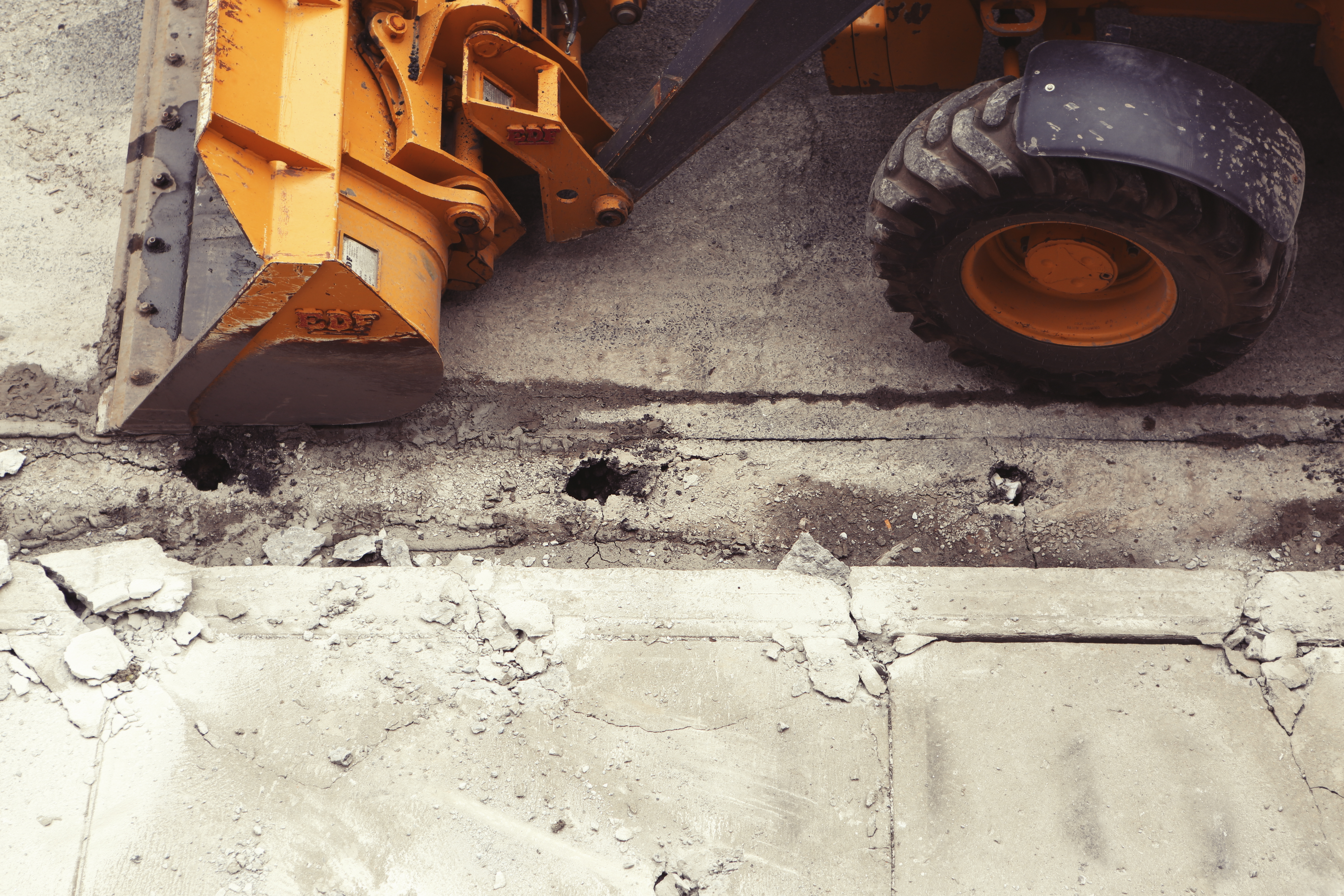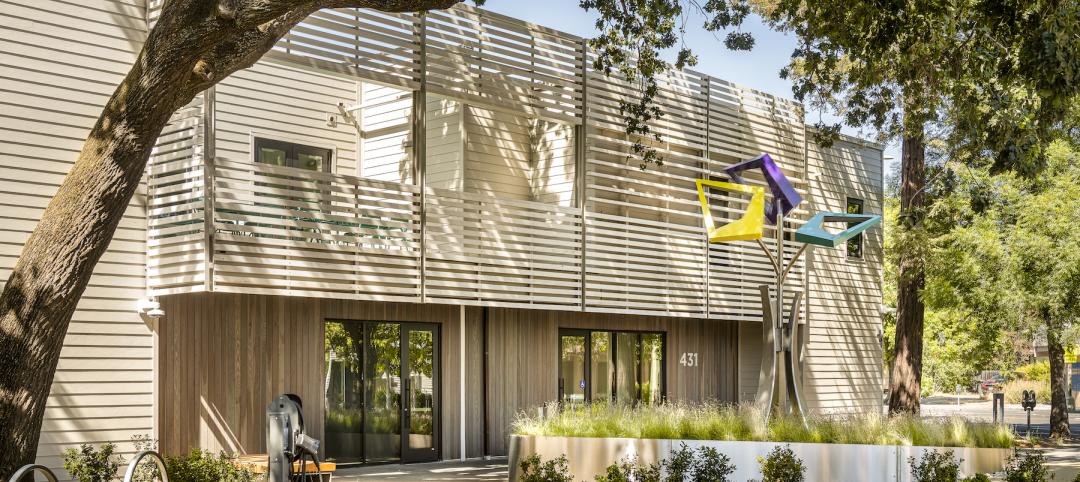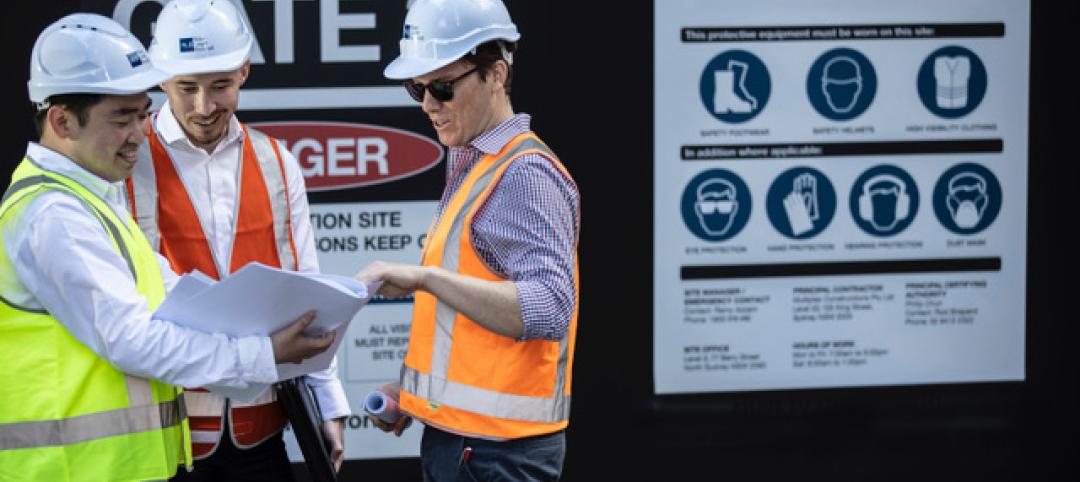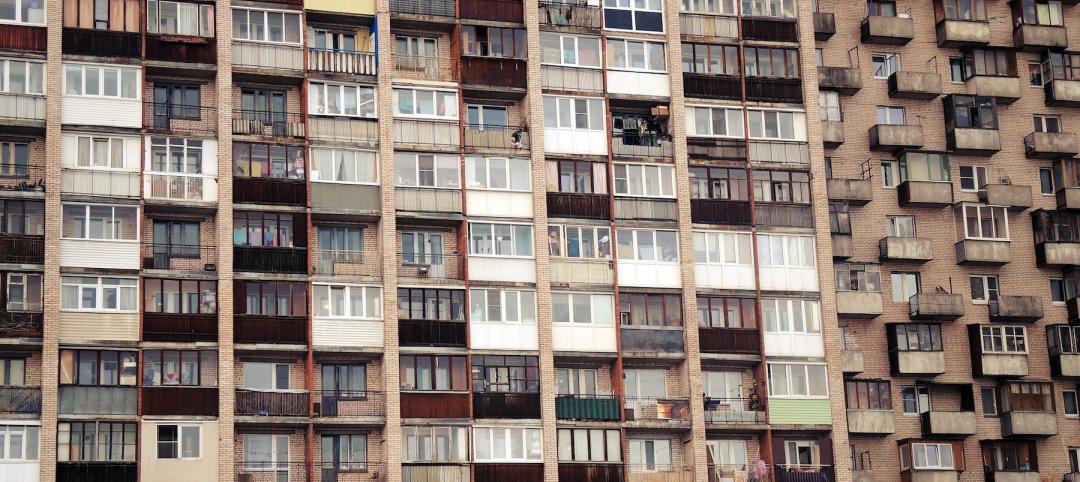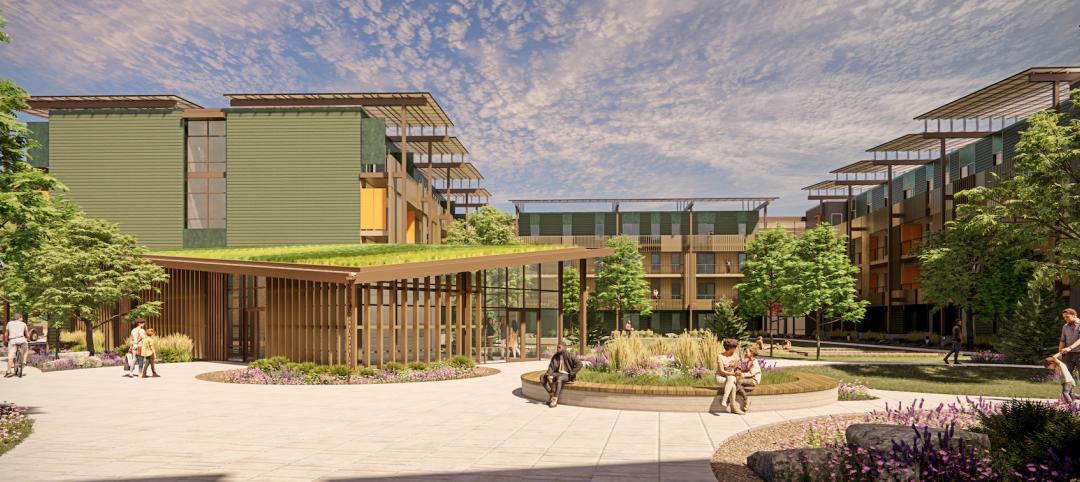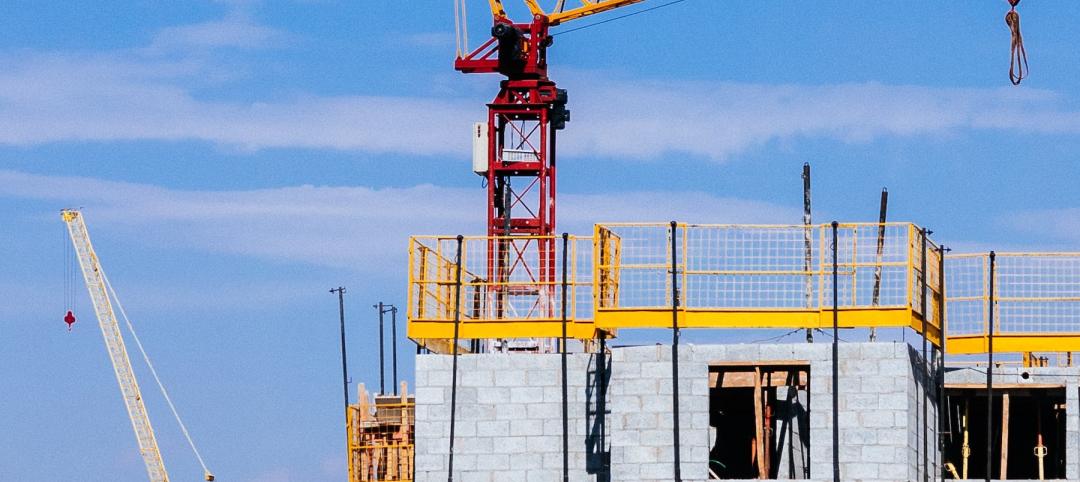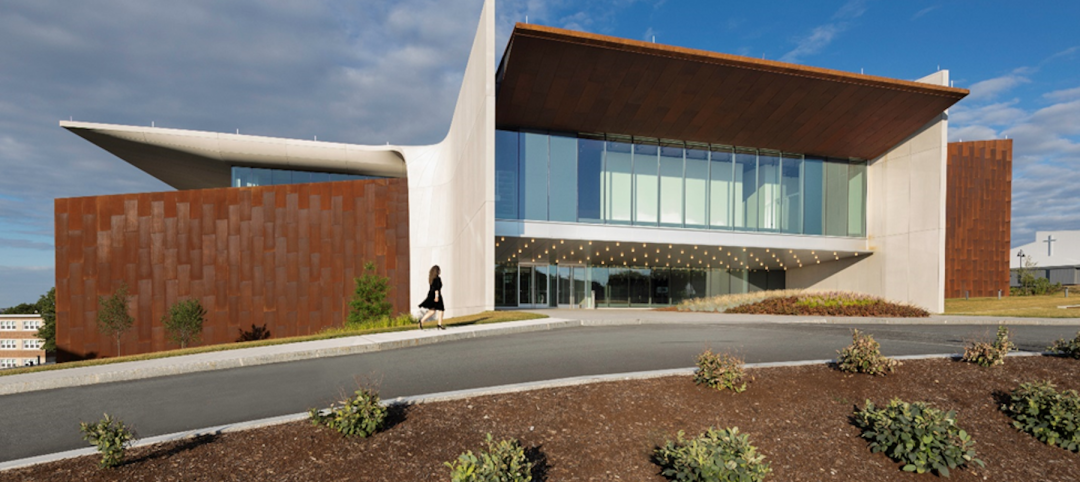Blame it on the weather. That's what many economists have been doing over the past two months as economic data continue to disappoint. Retail sales, durable goods orders, and other categories have not been as strong as anticipated.
Nonresidential construction has often proved an exception, with the industry's momentum gaining steam recently. However, in February, nonresidential construction spending remained virtually unchanged, inching down 0.1% on a monthly basis, according to the April 1 release from the U.S. Census Bureau.
The February 2015 spending figure is 4.6% higher than February 2014, as spending for the month totaled $611.5 billion on a seasonally adjusted annualized basis. The estimate for January spending was revised downward, from $614.1 billion to $611.9 billion, while the government revised December's spending estimate upward from $627 billion to $629.3 billion.
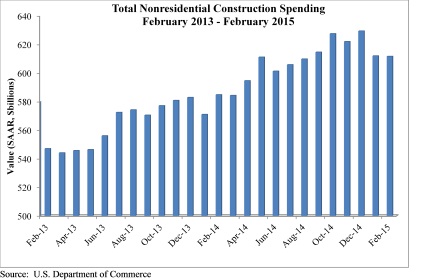
"Construction is impacted more by weather than just about any economic segment, and the impact of February's brutal weather is evident in the government's spending figure," said Associated Builders and Contractors Chief Economist Anirban Basu. "ABC continues to forecast a robust nonresidential construction spending recovery in 2015, despite the most recent monthly data, with the obvious exceptions of industry segments most directly and negatively impacted by declines in energy prices.
"The broader U.S. economy has not gotten off to as good a start in 2015 as many had expected with consumer spending growth frustrated by thriftier than anticipated shoppers," said Basu. "With winter behind us and temperatures warming, the expectation is that economic growth will roar back during the second quarter, which is precisely what happened last year. To the extent that this proves to be true, nonresidential construction's recovery can be expected to persist."
Seven of 16 nonresidential construction subsectors posted increases in spending in February on a monthly basis.
- Manufacturing-related spending expanded 6.8 percent in February and is up 37.9% on a year-over-year basis.
- Conservation and development-related construction spending expanded 11% for the month and is up 19.8% on a yearly basis.
- Office-related construction spending expanded 2.4% in February and is up 19% from the same time one year ago.
- Amusement and recreation-related construction spending gained 2% on a monthly basis and is up 22.5% from the same time last year.
- Education-related construction spending grew 0.3% for the month, but is down 0.6% on a year-over-year basis.
- Construction spending in the transportation category grew 0.6% on a monthly basis and has expanded 9.3% on an annual basis.
- Lodging-related construction spending was up 5% on a monthly basis and 10.4% on a year-over-year basis.
Spending in nine nonresidential construction subsectors failed to rise in February.
- Healthcare-related construction spending fell 0.9% for the month and is down 4.5% for the year.
- Spending in the water supply category dropped 7.8% from January, but is still 7.4% higher than at the same time last year.
- Public safety-related construction spending lost 2.2% on a monthly basis and is down 9.6% on a year-over-year basis.
- Commercial construction spending lost 1.9% in February, but is up 13.5% on a year-over-year basis.
- Religious spending fell 4.8% for the month and is down 10.3% from the same time last year.
- Sewage and waste disposal-related construction spending shed 1.4% for the month, but has grown 19.9% on a 12-month basis.
- Power-related construction spending fell 4.5% for the month and is 17.2% lower than at the same time one year ago.
- Lodging construction spending is down 4.4% on a monthly basis, but is up 18.2% on a year-over-year basis.
- Sewage and waste disposal-related construction spending shed 7.5% for the month, but has grown 16% on a 12-month basis.
- Power-related construction spending fell 1.1% for the month and is 13.2% lower than at the same time one year ago.
- Communication-related construction spending fell 6.1% for the month and is down 15.5% for the year.
- Highway and street-related construction spending was unchanged in February and is up 3.3% compared to the same time last year.
To view the previous spending report, click here.
Related Stories
Contractors | Oct 5, 2022
Materials shortages, cost spikes throwing Design-Bid-Build process out of whack
The traditional Design-Bid-Build delivery process is under considerable stress this year as materials shortages and cost spikes are upending usual practices, according to a new report from JLL.
Green | Oct 5, 2022
In California, a public power provider’s new headquarters serves as a test case for an innovative microgrid and for reducing greenhouse gas emissions
Sonoma Clean Power (SCP), the public power provider for California’s Sonoma and Mendocino Counties, recently unveiled its new all-electric headquarters.
Contractors | Oct 4, 2022
Project managers: Know your workforce
The number of considerations that go into starting a construction project are almost too numerous to count. Contracts, materials, labor, deadlines, even weather, to name a few. They vary from project to project, and any one of them can change in an instant, whether it be materials suddenly in short supply, labor that isn’t available for your particular kind of project (is it luxury hospitality or affordable residential?), or an unexpected phenomenon like Covid-19 that makes everything suddenly screech to a halt.
Contractors | Oct 4, 2022
Which comes first, the building or the cost estimate?
At the start of a project, don’t forget to establish financial parameters when you’re discussing the design and program. By establishing the costs up front, you can avoid the pitfalls that might derail your project and guarantee its lasting success.
Fire and Life Safety | Oct 4, 2022
Fire safety considerations for cantilevered buildings
Bold cantilevered designs are prevalent today, as developers and architects strive to maximize space, views, and natural light in buildings. Cantilevered structures, however, present a host of challenges for building teams, according to José R. Rivera, PE, Associate Principal and Director of Plumbing and Fire Protection with Lilker.
| Oct 4, 2022
Rental property owners want access to utility usage data for whole properties
As pressure from investors for ESG reporting mounts, owners of multifamily properties increasingly look to collect whole-building utility usage data.
| Oct 4, 2022
In dire need of affordable housing, Aspen, Colo. will get a development that provides 277 affordable homes
A few miles from downtown Aspen, Colo., a development will provide 277 new affordable homes for an area experiencing a dire affordable housing crisis.
Green | Oct 3, 2022
California regulators move to ban gas heaters for existing buildings
California regulators voted unanimously recently on a series of measures that include a ban on the sale of natural gas-powered heating and hot water systems beginning in 2030.
| Oct 3, 2022
The College of the Holy Cross completes a $110 million performing arts center
In Worcester, Mass., a one-hour drive from Boston, the College of the Holy Cross has completed its $110 million Prior Performing Arts Center.
Resiliency | Sep 30, 2022
Designing buildings for wildfire defensibility
Wold Architects and Engineers' Senior Planner Ryan Downs, AIA, talks about how to make structures and communities more fire-resistant.


